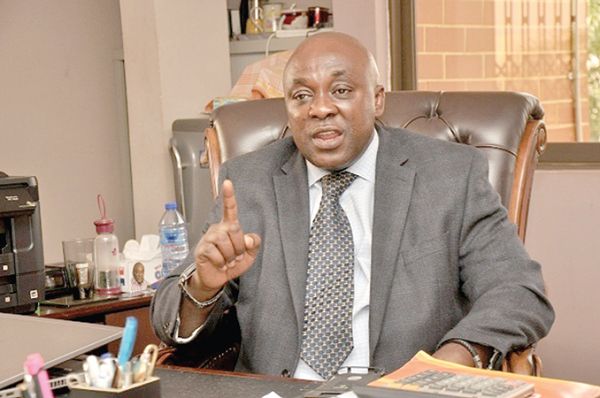The government has abandoned earlier plans to secure a US$24.5 million loan facility to revive the Komenda Sugar Factory, which has remained shut since its revival in 2016 by the previous administration.
Instead, the government is now on the hunt for a strategic partner who will invest in the company in return for shares.
This was disclosed by the Deputy Minister of Trade and Industry, Mr Carlos Ahenkora, in an interview with the GRAPHIC BUSINESS on the sidelines of the one year anniversary of ‘Business Trends’, a television programme that provides a platform for startups to share their stories.
The Komenda Sugar Factory, set up to provide 7,300 direct and indirect jobs at a cost of US$35 million from an Indian Exim Bank facility, remains unoperational since its inauguration.
At a time when the country imports about US$200 million worth of sugar every year, the factory, which has the capacity to crush 1,250 tonnes of sugar cane per day, is becoming a white elephant.
Earlier commitments
The Minister of Trade and Industry, Mr Alan Kyerematen, told Parliament last year that a US$24.5million Indian Exim Bank credit facility was being secured to develop and implement a plantation and outgrower scheme in a bid to provide raw materials, which remains the major challenge of the factory.
The scheme was to see the cultivation of some 14,100 acres of sugar cane to feed the plant.
This plan has, however, been abandoned because the government is now in favour of securing a strategic partner to invest in the factory.
“We are looking for a strategic partner to take over that business and bring it up to speed to benefit the people of Komenda and Ghana as a whole,” Mr Ahenkora stated.
“It is unfortunate that people will put up a factory without the necessary raw materials to run the factory.
If we want to commence operations at Komenda, we need to acquire high yielding sugar cane strains and also identify the soil type that is suitable to cultivate the sugar cane strain to deliver higher yield per acre per unit area,” he explained.
“We wanted to secure a loan to do this but we came to a realisation that accessing that loan and getting into the cultivation of sugar cane to make the factory work will make it worse off.
The modality for cultivating sugar cane is costly so we have decided against going for the loan.
We want the strategic partner to rather take the pain and pump in their money so we have a win-win situation,” he added.
Aveyime Rice Factory
With regards to another government factory, Aveyime Rice Factory, which was on its knees, he said the government was still in search for a strategic partner to take up its share in the factory.
He said some investors had showed interest but the government was looking for investors who were willing to commit resources.
“It’s not just Aveyime but all defunct government factories and enterprises, we are looking for investors who are ready to get us going,” he noted.
Plans for startups
When asked about the government’s plans for startup businesses, he said it had already helped a lot for startups in the country.
He said there were many constraints in starting up businesses in the country but the government was keen to make them survive.
“We have introduced the National Entrepreneurship Innovation Programme and the National Board for Small-Scale Industries (NBSSI), which would soon be converted into an enterprise business development centre which would focus on SMEs and startups,” he stated.
He said through the conversion, the NBSSI would now have more powers to access loans at cheaper rates for SMEs and startups.
“We are even looking at getting the Ghana Investment Promotion Centre (GIPC) and the Ghana Export Promotion Authority (GEPA) to put their heads together and put up an edifice where startups can meet and have their meetings.
Not everyone has the opportunity to find their own offices when they start their own business,” he noted.. —GB
